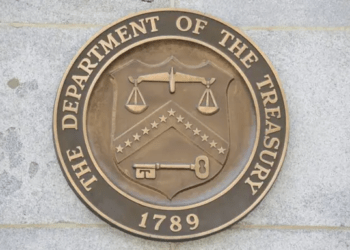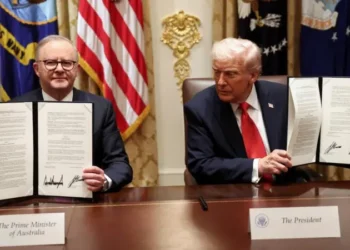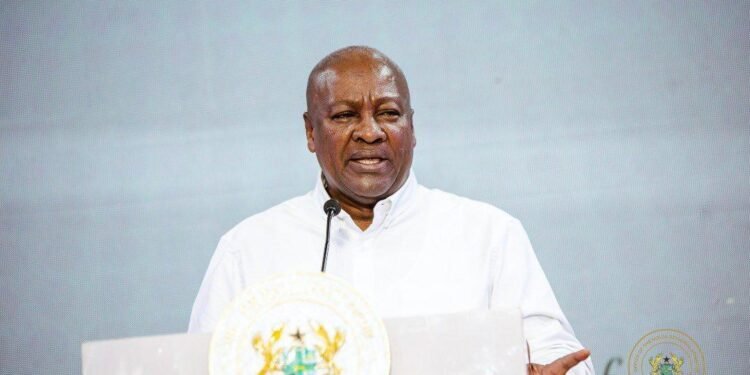Pentagon Chief, Pete Hegseth has announced that the US has carried out another military strike against what it claimed was a vessel carrying illegal drugs in the Caribbean.
In a social media post, Hegseth disclosed that the strike, conducted in international waters, killed all six people who were onboard, and was “the first strike at night.” He added that no US forces were harmed.
“The vessel was known by our intelligence to be involved in illicit narcotics smuggling, was transiting along a known narco-trafficking route, and carrying narcotics.”
Pete Hegseth
Hegseth claimed, without providing any evidence, that the target of the latest attack was “a vessel operated by Tren de Aragua (TdA), a Designated Terrorist Organization (DTO), trafficking narcotics in the Caribbean Sea.”

The administration has referred to Tren de Aragua and other gangs as terrorist organizations.
Also, the Pentagon Chief indicated that President Donald Trump himself had once again given authorisation for the strike.
“If you are a narco-terrorist smuggling drugs in our hemisphere, we will treat you like we treat al-Qaeda. Day or NIGHT, we will map your networks, track your people, hunt you down, and kill you.”
Pete Hegseth
The latest US attack is the 10th missile strike on a maritime vessel accused of trafficking illegal narcotics. The attack brings the total known death toll to 43 since the bombing campaign began.
It also marks an escalating pace to the air strikes as the US government has announced three strikes this week in as many days.
The bombing campaign began on September 2, 2025 with a missile strike that killed 11 people. Two more attacks were conducted that month.
October, however, has brought an increase in the frequency of the strikes and a broadening of their scope. At least seven known strikes have taken place this month, and while most have been concentrated in the Caribbean, two last week were conducted in the Pacific Ocean for the first time.
The Trump administration has declared the strikes without disclosing many details about the targets other than the number of people killed and the allegation that the boats carried narcotics.
The strikes have drawn widespread condemnation, including from civil liberties groups and several South American countries.
Earlier this week, the Colombian President, Gustavo Petro, condemned the US strikes, describing them as as “murder.”“The US government’s strategy breaks the norms of international law,” Petro said.
While this year the Trump administration has started designating Latin American cartels as “foreign terrorist organisations,” the label has traditionally been used to describe armed groups that seek to use violence for political or ideological aims.
Legal experts also maintain that a terrorism label alone does not justify the use of military force. Already, leaders in Colombia and Venezuela have denounced the bombing campaign and human rights experts at the United Nations have condemned the killings as a potential violation of international law.
Treaties like the UN Charter largely limit the use of military force except in cases of self-defence.“International law does not permit the unilateral use of force abroad to fight terrorism or drug trafficking,” UN human rights specialists, including Ben Saul, wrote in response to the strikes.
No Plans Of Slowing Bombing Campaign
Still, the Trump administration has indicated it has no plans to slow its bombing campaign against those it characterises as drug traffickers.
White House officials have also sought to justify the strikes internally and externally by claiming Trump was exercising his powers under article 2 of the US constitution, which allows the President to use military force in self-defense in limited engagements.
The US President has also repeatedly threatened to expand his bombing campaign to overland targets as well, a pledge that has yet to come to fruition.
READ ALSO: Finance Ministry Consults Ahead of 2026 Budget Reading























